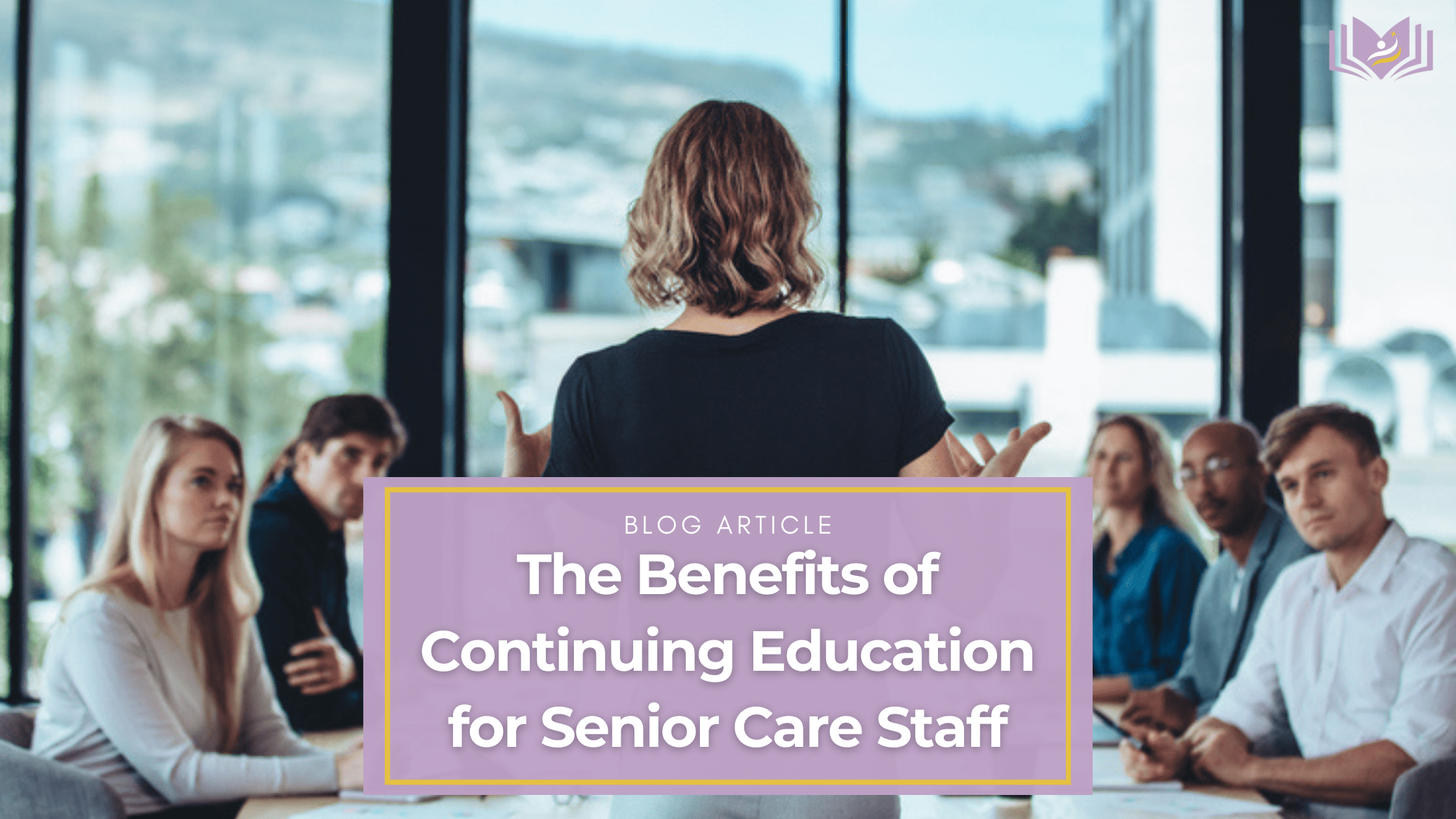
Navigating Senior Living Options: A Comprehensive Guide for Families
The journey of finding the right senior living arrangement for a loved one can be both emotional and challenging. Families often find themselves navigating a

Keeping staff members educated and informed in the senior care industry is important. As seniors’ needs change and new ways of caring for them emerge, staff need to stay on top of the latest knowledge and skills. Continuing education isn’t just about doing a good job – it’s about feeling confident, staying sharp, and making a real difference in the lives of the seniors they care for. In this blog, we’ll explore why ongoing education matters so much for senior care staff and how it benefits everyone involved.

Investing in ongoing education for senior care staff directly translates to improved quality of care for residents. Through continuous learning, staff members stay updated on senior care’s latest techniques, technologies, and best practices. This knowledge allows them to provide more effective, efficient, and compassionate care tailored to each resident’s unique needs.
The senior care industry is ever-changing, with new research, technology, and regulations emerging regularly. Continuous education ensures that staff members remain informed about these advancements, enabling them to adapt their practices accordingly. Continuously learning and training empowers senior care professionals to deliver the highest standards of care and support to residents, actively promoting their health, safety, and overall well-being.
Continuing education enables senior care staff to enhance their skills and expertise regularly, providing opportunities for career advancement within the industry. By staying updated on best practices and industry trends, staff members can expand their knowledge base and take on new responsibilities, contributing to their professional growth and development.
Participating in ongoing education cultivates a profound sense of fulfillment and achievement among senior care staff. As they actively acquire new knowledge and skills, staff members bolster their confidence in delivering top-notch care, resulting in greater job satisfaction and heightened morale. This fosters a positive work atmosphere and creates a culture of excellence and collaboration.
Continuing education for senior care staff directly contributes to improved experiences for residents. When staff members possess current knowledge and skills, they can provide more effective care, leading to better health outcomes, enhanced quality of life, and increased satisfaction among residents and their families.
Through ongoing education, senior care staff can stay informed about safety protocols, emergency procedures, and best practices for resident care. This knowledge allows staff to create a safer and more secure environment for residents, reducing the risk of accidents, injuries, and adverse events.
To maintain high standards of care, senior care facilities are encouraged to prioritize staff education. By investing in continuing education initiatives, facilities empower their staff to deliver exceptional care and create positive outcomes for residents. This commitment to ongoing learning ensures that staff remain updated with the latest practices and advancements in senior care, ultimately benefiting the well-being of residents. As part of this endeavor, facilities should actively explore education opportunities provided by Senior Living Consultant Academy (SLCA) and other reputable organizations. Through partnerships with SLCA, facilities actively access tailored programs and resources designed to support the professional development of senior care professionals, further enhancing the quality of care provided within the community.

The journey of finding the right senior living arrangement for a loved one can be both emotional and challenging. Families often find themselves navigating a

Beyond the transactional aspects of consultations, empathy plays a pivotal role in fostering genuine connections and tailoring recommendations with a compassionate touch. In this article,


This website uses cookies to ensure you get the best experience on our website. If you continue to use the site, then we will assume you are happy with it.